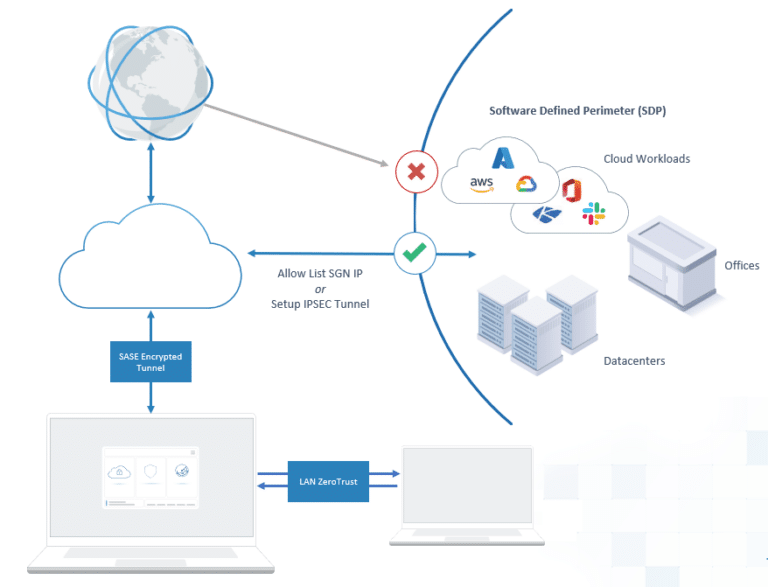The COVID-19 pandemic has fundamentally altered operational dynamics worldwide, compelling California law firms to adopt remote work practices. This transition to a hybrid working model underscores the necessity for these firms to reassess their IT infrastructure, ensuring both reliability and secure remote access.

This article outlines critical IT infrastructure considerations that California law firms must address as they aim to scale their operations and maintain robustness in a predominantly hybrid work environment:
1. Cloud-based Solutions
The shift towards cloud computing is revolutionizing how law firms operate, offering unparalleled flexibility, scalability, and security. Adopting cloud-based solutions allows legal professionals to access critical case files and applications from anywhere, at any time—enabling a truly mobile workforce that can respond swiftly to client needs regardless of location. This technology not only supports the hybrid work model but also facilitates seamless collaboration among team members by allowing simultaneous document editing and sharing within a secure environment. Moreover, with built-in redundancy and disaster recovery capabilities, cloud services ensure data integrity and availability even in the event of local hardware failures. For California law firms looking to scale their operations while maintaining high levels of client confidentiality and data protection, investing in robust cloud infrastructure is key to achieving these objectives efficiently.
2. High-speed Internet Connection
For law firms embracing remote or hybrid work models, a high-speed internet connection is not just beneficial; it’s essential. This foundational element ensures that attorneys and staff can access case files, conduct legal research, and utilize cloud-based applications without frustrating delays or interruptions. Moreover, in the realm of virtual client consultations and court appearances becoming increasingly common, reliable internet service supports clear video conferencing calls free from connectivity issues—maintaining professionalism and effective communication. Additionally, a robust internet connection facilitates smoother collaboration across various online platforms and tools, enabling teams to work efficiently regardless of their physical location. Prioritizing this infrastructure investment empowers law firms to meet the demands of modern legal practice while enhancing overall productivity and client service delivery.
3. Virtual Private Network (VPN)
In the hybrid work model, a Virtual Private Network (VPN) becomes indispensable for ensuring secure remote access to a law firm’s internal network. A VPN establishes an encrypted connection over the internet from a device to the network, safeguarding data integrity and confidentiality during transmission. This is crucial for attorneys and staff who handle sensitive client information outside the traditional office boundaries. By deploying a reliable VPN solution, law firms can provide their employees with safe access to necessary files and applications as if they were on-site, minimizing risks of data breaches or cyber intrusions. Furthermore, adopting robust VPN technologies reinforces compliance with legal standards for client privacy and data protection—essential aspects in maintaining trust and upholding professional responsibility in legal practice.
Alternatively, a new technology known as SASE or Secure Access Service Edge can replace VPN. SASE is a cloud-based tool that is considered an “always-on VPN” with an added security layer, which improves network performance if your team is working from home or does not have a physical office. For example, the image below shows a user working on a laptop from home or out of the office. The computer uses an always-on secure “encrypted tunnel” to access the Internet, cloud apps (Office 365, Slack, AWS) or the network in office or data centers without a VPN.

4. Collaboration Tools
In the dispersed landscape of hybrid work, having robust collaboration tools is paramount for maintaining team cohesion and ensuring seamless case management. Law firms should equip their teams with advanced video conferencing software, instant messaging platforms, project management applications, and document-sharing systems to facilitate efficient internal communication and client interactions. These digital solutions enable lawyers and support staff to stay connected in real-time, share insights quickly, discuss strategies effectively, and maintain a unified approach to casework regardless of physical locations. Additionally, integrating these tools into daily operations helps replicate the collaborative atmosphere of an office environment virtually—ensuring productivity remains high while fostering a sense of community among remote employees.
5. Cybersecurity Measures
In an era where cyber threats loom large, especially for sectors dealing with sensitive information like law firms, robust cybersecurity measures are non-negotiable. Law firms must implement comprehensive security protocols including firewalls, anti-virus software, and data encryption to safeguard against unauthorized access and cyberattacks. Regular updates and patches to these systems help address vulnerabilities promptly, while employee training on cybersecurity best practices educates staff on recognizing phishing attempts and securing client data effectively. Moreover, implementing multi-factor authentication adds an extra layer of security for accessing firm resources remotely. These proactive steps not only protect the firm’s valuable data but also uphold its reputation by ensuring client confidentiality is never compromised.
6. Disaster Recovery Plan
Law firms face the risk of data loss or operational disruption due to unforeseen events such as cyberattacks, natural disasters, or technical failures. Having a comprehensive disaster recovery plan is essential for mitigating these risks and ensuring business continuity. This plan should detail procedures for data backup, system restoration, alternative communication methods, and access to critical resources in emergency situations. By preparing for worst-case scenarios, law firms can minimize downtime and maintain client trust by demonstrating resilience and preparedness to continue operations under any circumstances. Implementing such a strategy ensures that vital functions can be rapidly restored, safeguarding both firm and client interests against potential threats.
7. Scalability
As law firms evolve and expand, their IT infrastructure must adapt to accommodate growing demands for data storage and an increased workload. This is particularly crucial in a hybrid work environment where the number of remote workers can vary significantly. By investing in scalable IT solutions, law firms ensure they remain agile—capable of adjusting resources efficiently to meet both current needs and future growth without compromising performance or security. Scalability facilitates seamless operational expansion, enabling firms to navigate the complexities of scaling up services or onboarding new clients with minimal disruption.
In conclusion, adapting to a hybrid work environment necessitates California law firms to fortify their IT infrastructure with cloud solutions, high-speed internet, secure VPNs, collaboration tools, comprehensive cybersecurity measures, and disaster recovery plans. This strategic investment enables efficient remote operations and positions firms for scalable growth amidst evolving workplace dynamics.
Frequently Asked Questions
At eSudo, we help your law firm feel like a big business when it comes to technology. Our IT services support legal practices by providing specialized solutions that align with the unique challenges and compliance needs of the legal industry. Integrating IT solutions is essential to enhance legal services, ensuring operational excellence and future growth.
For over 23+ years, we give you all the tools and support you need without the cost of hiring extra staff. That means if things go wrong, you don’t have to worry about layoffs or added expenses.
Our IT services give you the power of a large business at a fraction of the cost, helping you stay competitive in today’s digital world. With us, your business can compete with the big players and make more money while staying secure and efficient.
We specialize in working with law firms, such as estate planning, immigration and intellectual property attorneys. However, eSudo have helped other business such as non-profit organizations, manufacturing and other small businesses after we have reviewed their needs and determined if they are good fit for our services.
eSudo is not a traditional computer support company; we focus on security first, and computer support happens to be part of the security services. In the dynamic landscape of network security, a proactive approach is key to safeguarding your business. It’s not a one-time event but an ongoing commitment to keep your systems resilient against evolving threats. With the rise of a mobile workforce and the omnipresence of phishing attempts or social engineering or AI, educating your employees, continuous monitoring and proactive support are vital to prevent data breaches.
If your business is looking for break-fix support or hourly IT services, we may not be for you because we cannot fully manage your risks and more importantly, it creates a trust issue in our relationship. Under a “break-fix” model, there is a fundamental conflict of interest between your business and eSudo.
“Over 97% of American businesses in 2023, operating in a digitally-driven landscape, heavily rely on the Internet for essential functions such as productivity, performance optimization, streamlined communication, bolstered sales, and various other facets of their daily operations. This heightened dependence on digital infrastructure, however, comes with a notable caveat: more than 87% of small businesses are entrusted with customer data that could be potentially compromised in the event of a cyberattack.”
We keep your IT Systems running and data secure with our proven IT Strategy, Managed Security, and Proactive Support & End User Management. Our Strategy focuses on identifying, prioritizing, and recommending the right technology for your organization. Our Managed Security includes data backup, device encryption, zero-trust access management, and policies & procedures. Our Support includes a live phone help desk, 24/7 monitoring, on-site support as needed, employee onboarding, and asset procurement.
Proven track record: We have been building our loyal customer base since 2001 in an industry where IT consulting firms come and go. Our customers, vendors, and employees stay with us because we build and value long term relationships with them. With operations all over the San Francisco Bay Area, eSudo provides reliable IT support to Northern CA-based businesses and beyond. We’re big enough to offer the facilities, services, and expertise you expect and small enough to provide the support and attention you deserve.
People & Process: Over the last 22+ years, we have created and adopted a proven process to ensure success in our operations and have trained our people to follow our proven process to provide consistent results for our customers.
Quality: We do not sell what we have not used or have tested. We recommend industrial and commercial-grade products for small businesses to provide uptime and reliability for our customers.
Responsiveness: A live person will answer your call, and emergency response time is one hour or less guaranteed. We use the most current remote support technology which lets us log in to your computers remotely to address many issues without the need to wait for a technician to come on-site.
This is a very difficult question to answer because not all environments are the same, we will do our best to explain some general pricing guidelines.
For a business with 10 to 50 employees, IT support is a crucial investment to ensure smooth operations and data security. This support includes system maintenance, cybersecurity measures, help desk services, data backup, and software updates. As an IT manager and business owner, allocating a reasonable budget for IT support is essential to prevent downtime, protect against cyber threats, and ensure the firm’s efficiency and success in the digital era. Neglecting IT support can lead to potential vulnerabilities and higher costs in the long run. Thus, viewing IT support as a necessary investment is vital for sustaining your firm’s operations effectively and securely.
A typical price for IT Support and Cybersecurity ranges from $185 to $300 per user per month. Actual cost will be determined after we meet and perform an assessment of your environment.

